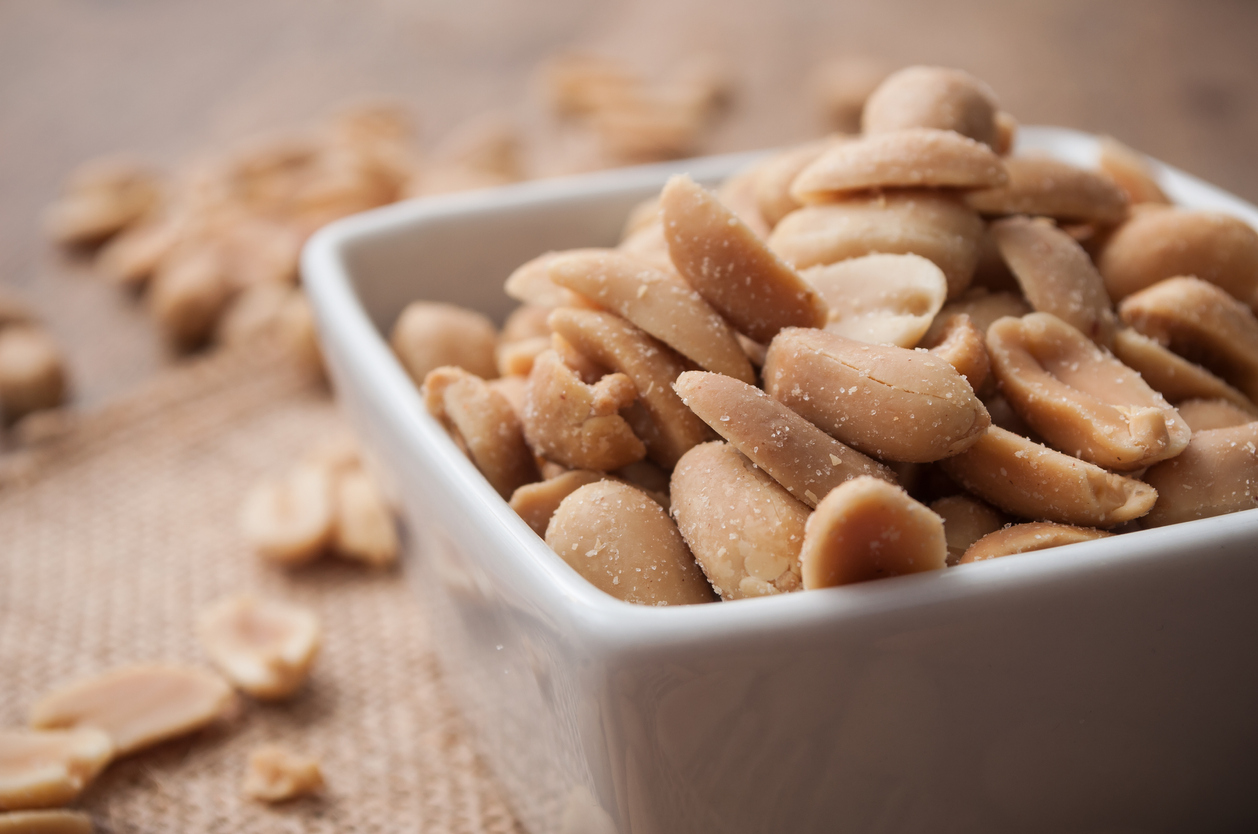A new inhibitor could be the key to treating peanut allergy

A free daily email with the biggest news stories of the day – and the best features from TheWeek.com
You are now subscribed
Your newsletter sign-up was successful
If you're one of the 75 million people on Earth with a peanut allergy, here's some exciting news: Scientists are getting closer to developing a treatment for the allergy that might not involve stabbing yourself with an EpiPen.
In a new study published in the journal Proceedings of the National Academy of Sciences on Monday, researchers managed to find a way to inhibit an allergic reaction to peanuts. The reaction starts when peanuts enter the person's body and their immune system misinterprets the food as a threat, Newsweek explained. It then creates a protein called immunoglobulin E (IgE) in order to attack the food, which prompt reactions from itchiness and hives to a swelling throat and difficulty breathing.
For this study, the scientists tested the blood of 16 participants who have a peanut allergy, observing the way that IgE binds to the peanut proteins. From there, they were able to develop an inhibitor that would bind to the IgE before it could reach the peanut proteins, thus stopping an allergic reaction from occurring.
The Week
Escape your echo chamber. Get the facts behind the news, plus analysis from multiple perspectives.

Sign up for The Week's Free Newsletters
From our morning news briefing to a weekly Good News Newsletter, get the best of The Week delivered directly to your inbox.
From our morning news briefing to a weekly Good News Newsletter, get the best of The Week delivered directly to your inbox.
This new type of inhibitor is different from other allergy treatments in that it targets IgE without interfering with "any other essential immune system molecules or cells," explained Dr. Basar Bilgicer, co-author of the study and associate professor at the University of Notre Dame. This means that a new treatment based on this type of inhibitor won't stop people's immune systems from carrying out other "very important functions that are vital for patients' well-being."
Because many food allergies work like peanut allergy, this could also mean scientists are closer to developing similar treatments for all sorts of allergens, like other nuts, soy, or dairy. Read more about the study at Newsweek.
A free daily email with the biggest news stories of the day – and the best features from TheWeek.com
Shivani is the editorial assistant at TheWeek.com and has previously written for StreetEasy and Mic.com. A graduate of the physics and journalism departments at NYU, Shivani currently lives in Brooklyn and spends free time cooking, watching TV, and taking too many selfies.
-
 The problem with diagnosing profound autism
The problem with diagnosing profound autismThe Explainer Experts are reconsidering the idea of autism as a spectrum, which could impact diagnoses and policy making for the condition
-
 What to know before filing your own taxes for the first time
What to know before filing your own taxes for the first timethe explainer Tackle this financial milestone with confidence
-
 The biggest box office flops of the 21st century
The biggest box office flops of the 21st centuryin depth Unnecessary remakes and turgid, expensive CGI-fests highlight this list of these most notorious box-office losers
-
 Key Bangladesh election returns old guard to power
Key Bangladesh election returns old guard to powerSpeed Read The Bangladesh Nationalist Party claimed a decisive victory
-
 Epstein files topple law CEO, roil UK government
Epstein files topple law CEO, roil UK governmentSpeed Read Peter Mandelson, Britain’s former ambassador to the US, is caught up in the scandal
-
 Iran and US prepare to meet after skirmishes
Iran and US prepare to meet after skirmishesSpeed Read The incident comes amid heightened tensions in the Middle East
-
 EU and India clinch trade pact amid US tariff war
EU and India clinch trade pact amid US tariff warSpeed Read The agreement will slash tariffs on most goods over the next decade
-
 Israel retrieves final hostage’s body from Gaza
Israel retrieves final hostage’s body from GazaSpeed Read The 24-year-old police officer was killed during the initial Hamas attack
-
 China’s Xi targets top general in growing purge
China’s Xi targets top general in growing purgeSpeed Read Zhang Youxia is being investigated over ‘grave violations’ of the law
-
 Panama and Canada are negotiating over a crucial copper mine
Panama and Canada are negotiating over a crucial copper mineIn the Spotlight Panama is set to make a final decision on the mine this summer
-
 Why Greenland’s natural resources are nearly impossible to mine
Why Greenland’s natural resources are nearly impossible to mineThe Explainer The country’s natural landscape makes the task extremely difficult